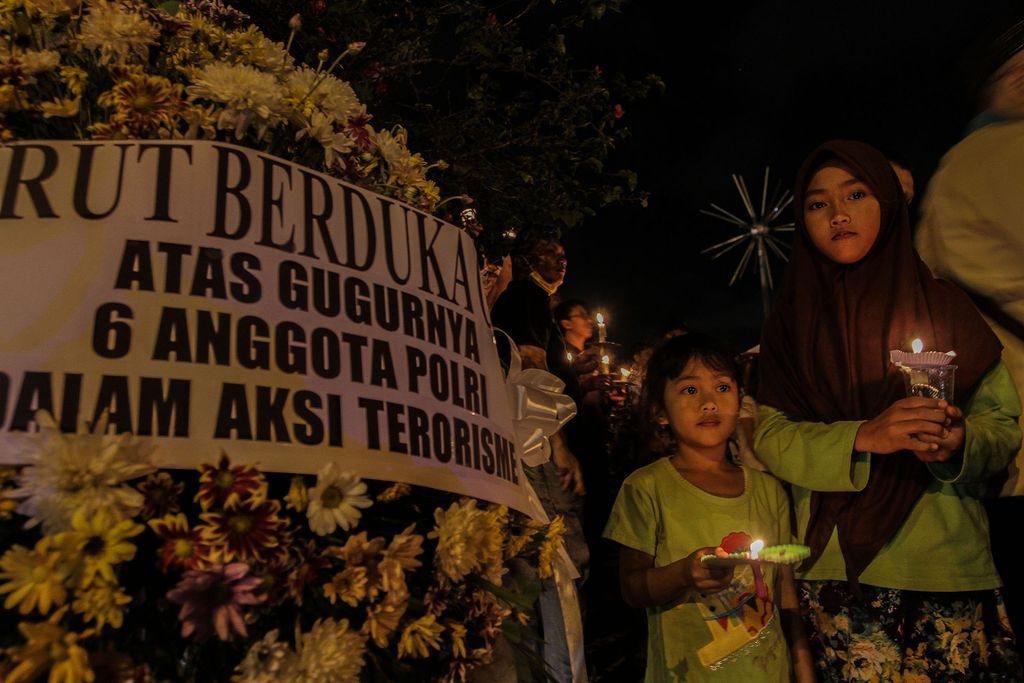Quasi-Religious Terrorism
Terrorism has existed for a long time, but it has never been accounted for in international politics until Sept. 11, 2001. Since then, quasi-religious terrorism has succeeded in dictating the political pattern of US bilateral relations.

Residents from various backgrounds attend a vigil in opposition to radicalism and terrorism in Pekanbaru, Riau, on Tuesday (15/5/2018) night. The participants sent prayers to victims of the bomb attack in Surabaya and expressed support for the Indonesian Military (TNI) and the National Police in its efforts to eradicate terrorism.
In his essay, The End of History (1989, 1992, book), Francis Fukuyama, an American sociologist, describes his hypothesis about the victory of liberal democracy and the free market along with the end of the Cold War between the Western bloc (the United States and its allies) and the communist bloc (the Soviet Union and its allies).
In its development, the hypothesis was aborted by two facts that are beyond Fukuyama\'s calculations. The first, the dissolution of the Soviet Union state and subsequent transformation into Russia under Putin, who remains communist and emerges as a new force that the US cannot dictate. Also, communist China is getting stronger and unshakable, challenging the US hegemony. The ideology of communism survives by adopting capitalism and the free market.